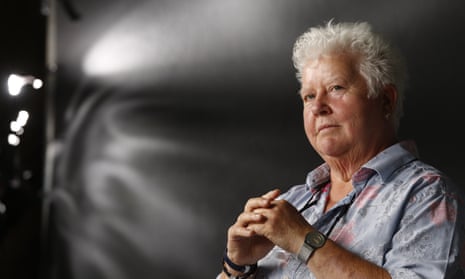Imagine a world in which even the slightest scratch could be lethal. Cancer treatments, including chemotherapy, and organ transplants are no longer possible. Even simple surgery is too risky to contemplate, while epidemics triggered by deadly bacteria have left our health services helpless.
It is science fiction, of course – but only just. According to many doctors and scientists, the rise of antibiotic resistance across the planet could soon make this grim scenario a reality. And if it does, humans will have to face up to challenges that would once have seemed unthinkable. The question is: when – and how – might this horrific medical ordeal unfold for the human race?
It is a question that crime writer Val McDermid will attempt to answer next month in an unusual way – in a three-part radio drama, Resistance, which is to be aired on Radio 4. In it she will put dramatic flesh on scientific warnings of the hazards we now face because of our past misuse of antibiotics.
“We are looking down a barrel, into a world that was like the one we had when there were no antibiotics,” says McDermid. “We face returning to a time when every form of surgery was life-threatening, because every form of surgery carries with it the danger of infections. Even going to the dentist to have a tooth out will have risks involved.”
The issue of antibiotics resistance is not new. There have been many powerful, well-made documentaries on the issue. But a drama series on the subject represents a very different approach.
“The point about drama is that it has the power to tell a personal story – to put us in the shoes of the people to whom this is happening,” McDermid argues. “Potentially, it will have more impact because the listener is thinking, ‘That could be me, my family, my neighbours or my friends.’ ”
Resistance is the end product of a workshop on anti-microbial resistance – organised by the Wellcome Trust – that was attended by scientists, writers and radio producers. “They threw us all in a room, gave us a couple of talks, then let us chat about what the future might look like,” says one of the show’s science advisers, Christopher Dowson, professor of microbiology at Warwick University. The end result was McDermid’s pitch to the BBC about an outbreak of a deadly epidemic that is spread by a microbial agent that acquires antibiotic resistance.
“I was profoundly shocked about what I learned about antimicrobial resistance at the workshop,” adds McDermid. “We have not developed any new antibiotics since the 1980s. We have just gone to the cupboard and taken out the next one – to the point that the cupboard is now bare.”
It is a global problem, of course, and that poses real headaches for a dramatist, adds McDermid.
“Trying to convey the scale of something like this while still keeping the drama on a human level is very tricky. Listeners have to engage with the characters. They have to care about them. Combining that with the urgency of such a global threat is really challenging.”
To get round this problem McDermid has placed a journalist – to be played by Gina McKee – at the centre of the action in Resistance.
“She is there at the start of the whole thing. She has a husband, children and friends, who are all closely involved. She is the human heart of the drama, if you like. And there are others – scientists and researchers. I keep coming back to the human aspect of it all. Then the epidemic breaks out and the characters have no way of knowing who will be affected.
“Some will have natural resistance, but no one knows who that will be. So in that sense, the whole world is threatened – which is, of course, the situation in real life.”
As to the causes of the coming crisis, we all have some guilt in this, says McDermid. “We have gone to the doctors and demanded antibiotics – well, most of us have – and the doctors have given us them when they shouldn’t have. We have even turned our seas into reservoirs of resistance by painting battleships with the antibiotic tetracycline to stop barnacles attaching themselves to hulls. And what does that do? It just fills the oceans with tetracycline.”
The global nature of the problem also makes it very difficult to tackle, adds Dowson. “There is no single solution to this crisis. You have got to cross animal veterinary medicine, food chains, individual responsibility, corporate responsibility, hospital responsibility, government responsibility, international plane travel. It is extraordinarily complicated – and worrying.”
Resistance will be broadcast on 3, 10 and 17 March at 2.15pm on BBC Radio 4

Comments (…)
Sign in or create your Guardian account to join the discussion